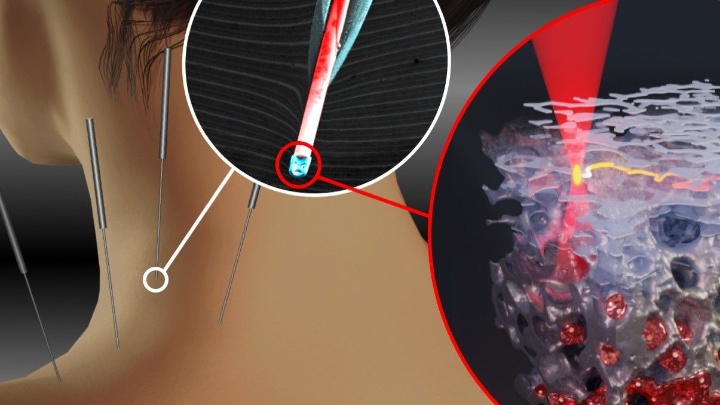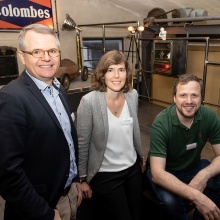Research projects that are at an early stage of development face great uncertainty and therefore receive little regard in calls for tender. In order to provide greater support for such projects, the Carl Zeiss Foundation launched the CZS Wildcard program at the beginning of 2022. The "EndoPrint3D" project at the University of Stuttgart was one of the first five research initiatives to be selected: The consortium, led by Dr.Andrea Toulouse (spokesperson) and Prof. Alois Herkommer (both Institute of Applied Optics), Prof. Michael Heymann (Institute of Biomaterials and Biomolecular Systems) and Prof. Harald Giessen (4th Institute of Physics) has set itself the goal of enabling endoscopic 3D printing of biomaterials directly in the body, thus allowing minimally invasive surgical repair of organ damage. The researchers plan to apply bioink directly to an injured organ and harden the ink using an in-situ laser. This would revolutionize plastic microsurgery. For example, in the future, holes in the hearts of embryos or premature babies could be repaired, or repairs could be made to the ossicles - without damaging surrounding tissue.

The EndoPrint3D project combines a fiber optic endoscope with 3D printing of biogenic materials. A system comprising a femtosecond laser, a multi-core fiber, micro-optics, microfluidic components and printable biomaterials is being developed. This system is designed to apply customized bioinks directly to the damaged organ and harden the ink in-situ with microscopic precision using a laser. Simultaneously, the 3D printing process can be observed endoscopically in real time.
Currently, femtosecond 3D printing is only possible using a stationary microscope lens as a printhead, which has the diameter of a 2-euro coin. The project aims to reduce this printhead to the size of a thin needle and to make it moveabl
| Contact | Dr. Andrea Toulouse,Institute of Applied Optics, E-Mail, Prof. Alois Herkommer, Institute of Applied Optics, E-Mail, Prof. Harald Giessen, 4th Institute of Physics, E-Mail, Prof. Michael Heymann, Institute of Biomaterials and Biomolecular Systems, E-Mail |
|---|


